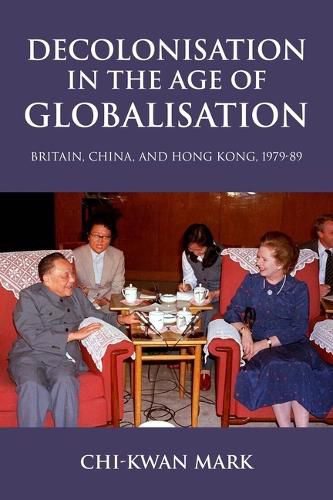Readings Newsletter
Become a Readings Member to make your shopping experience even easier.
Sign in or sign up for free!
You’re not far away from qualifying for FREE standard shipping within Australia
You’ve qualified for FREE standard shipping within Australia
The cart is loading…






Drawing extensively on the declassified British archives and Chinese sources, this book explores how Britain and China negotiated for Hong Kong's future, and how Anglo-Chinese relations flourished after 1984. This original study argues that Thatcher was a pragmatic neoliberal, and the British diplomacy of 'educating' China yielded mixed results.
In the 1980s, Britain actively engaged with China in order to promote globalisation and manage Hong Kong's decolonisation. Influenced by neoliberalism, Margaret Thatcher saw Britain as a global trading nation, which was well placed to serve China's reform. During the negotiations over Hong Kong's future, British diplomats aimed to educate the Chinese in free-market capitalism. Nevertheless, Deng Xiaoping held an alternative vision of globalisation, one that privileged sovereignty and socialism over market liberalism and democracy.
By drawing extensively upon the declassified British archives along with Chinese sources, this book explores how Britain and China negotiated for Hong Kong's future, and how Anglo-Chinese relations flourished after 1984 but suffered a setback as a result of the 1989 Tiananmen Square crackdown. This original study argues that Thatcher was a pragmatic neoliberal, and the British diplomacy of 'educating' China yielded mixed results.
$9.00 standard shipping within Australia
FREE standard shipping within Australia for orders over $100.00
Express & International shipping calculated at checkout
Drawing extensively on the declassified British archives and Chinese sources, this book explores how Britain and China negotiated for Hong Kong's future, and how Anglo-Chinese relations flourished after 1984. This original study argues that Thatcher was a pragmatic neoliberal, and the British diplomacy of 'educating' China yielded mixed results.
In the 1980s, Britain actively engaged with China in order to promote globalisation and manage Hong Kong's decolonisation. Influenced by neoliberalism, Margaret Thatcher saw Britain as a global trading nation, which was well placed to serve China's reform. During the negotiations over Hong Kong's future, British diplomats aimed to educate the Chinese in free-market capitalism. Nevertheless, Deng Xiaoping held an alternative vision of globalisation, one that privileged sovereignty and socialism over market liberalism and democracy.
By drawing extensively upon the declassified British archives along with Chinese sources, this book explores how Britain and China negotiated for Hong Kong's future, and how Anglo-Chinese relations flourished after 1984 but suffered a setback as a result of the 1989 Tiananmen Square crackdown. This original study argues that Thatcher was a pragmatic neoliberal, and the British diplomacy of 'educating' China yielded mixed results.